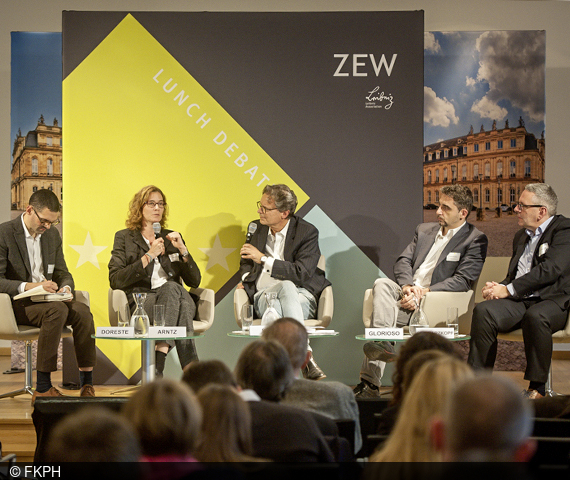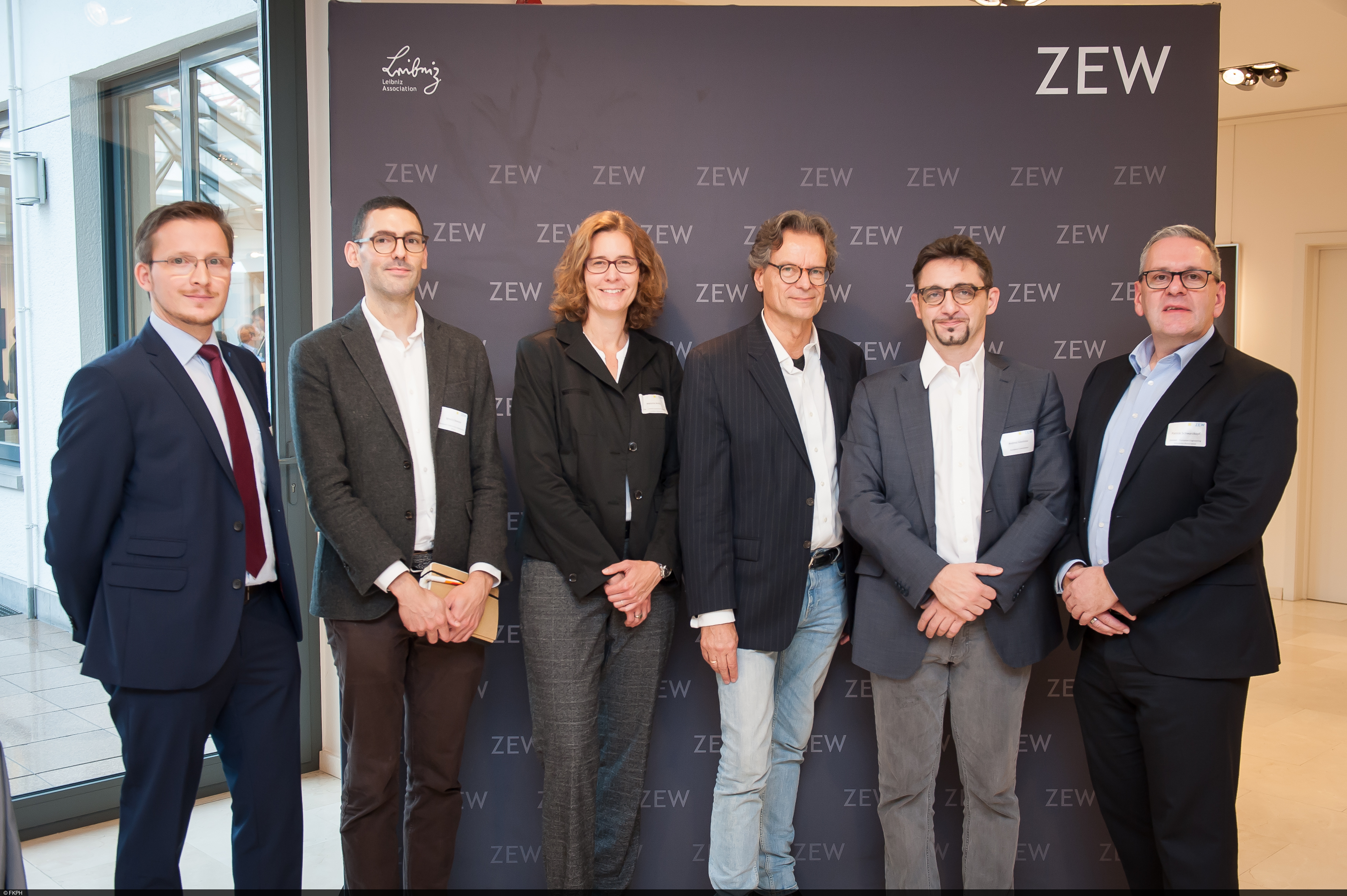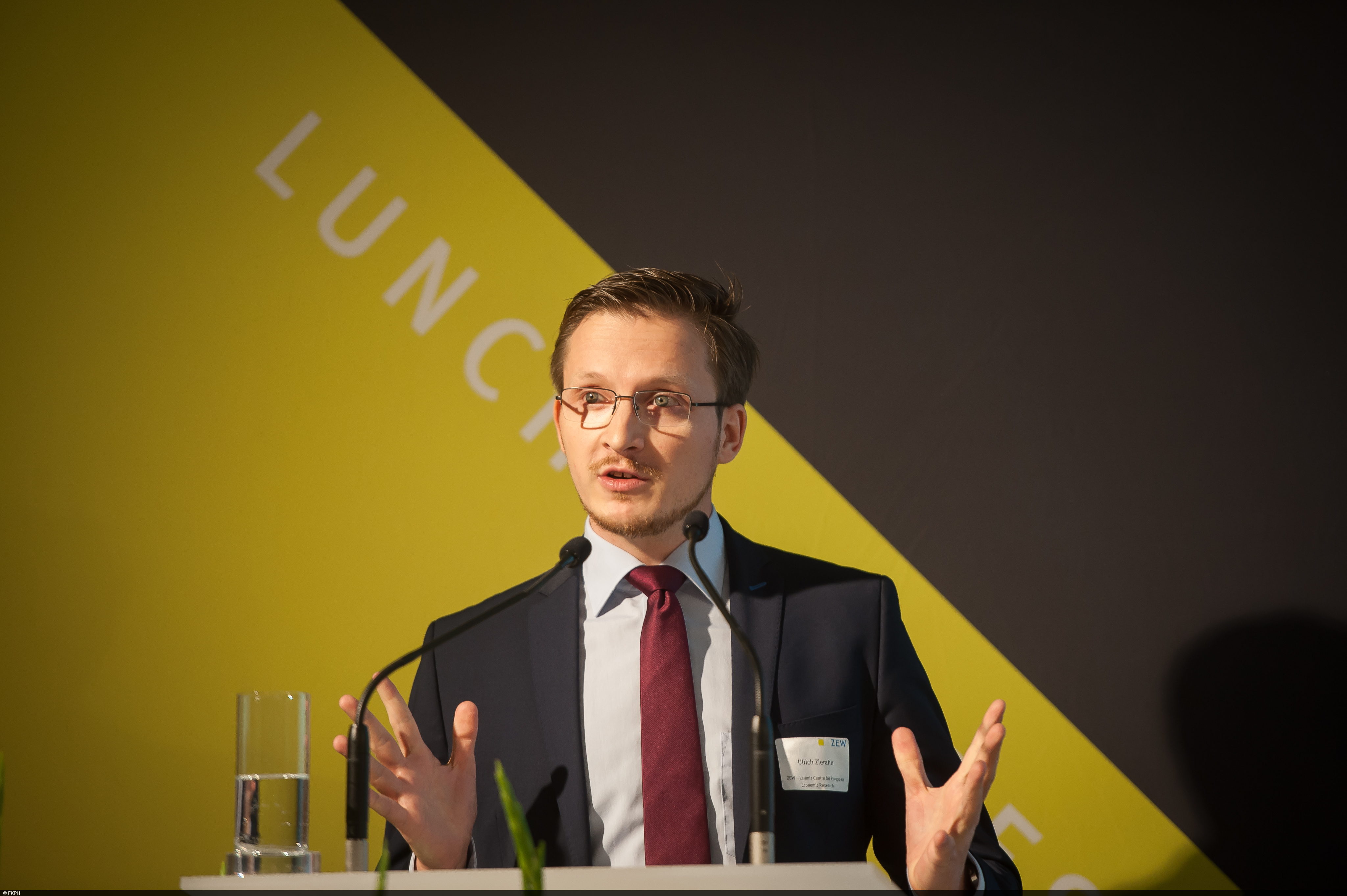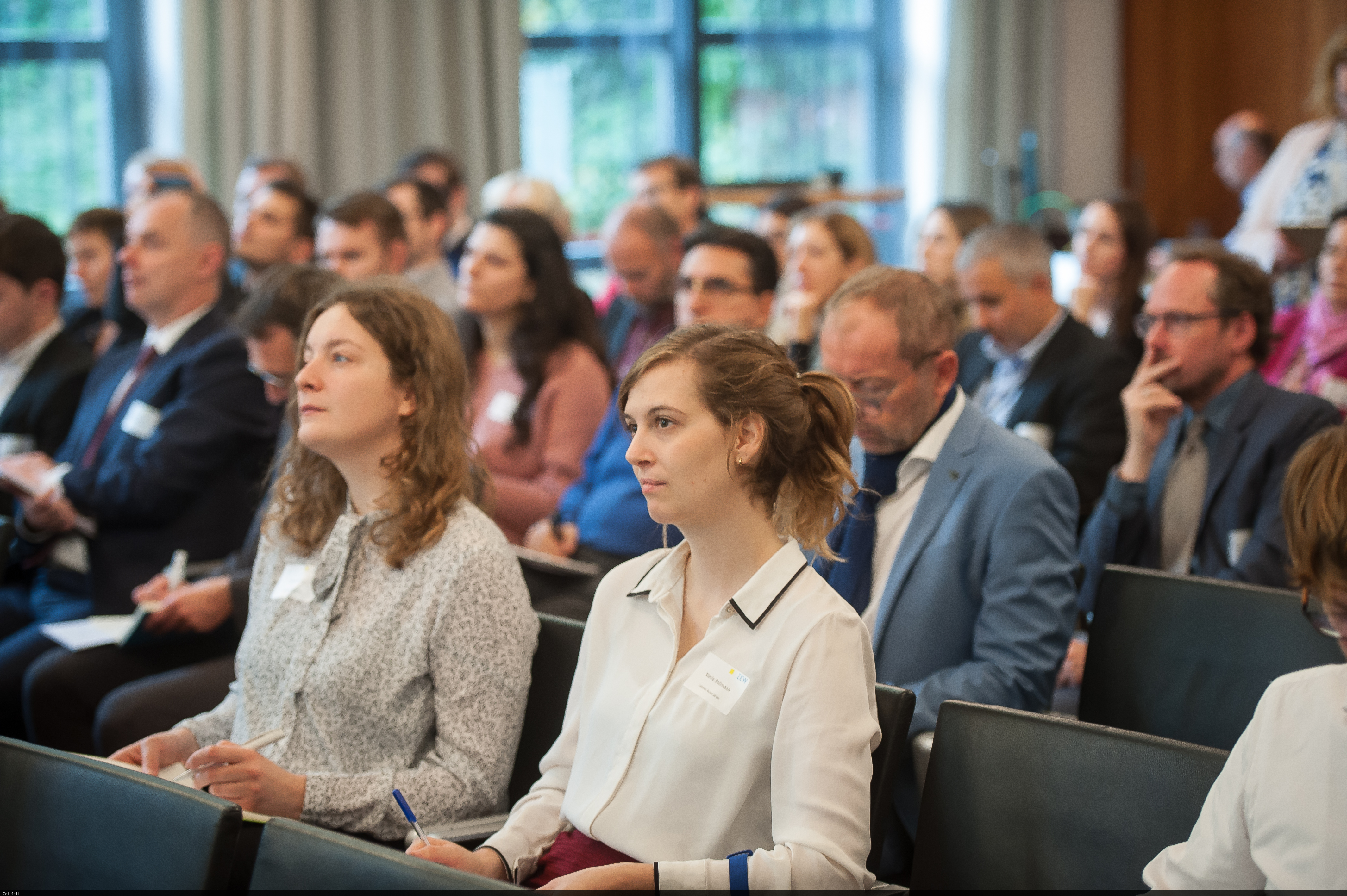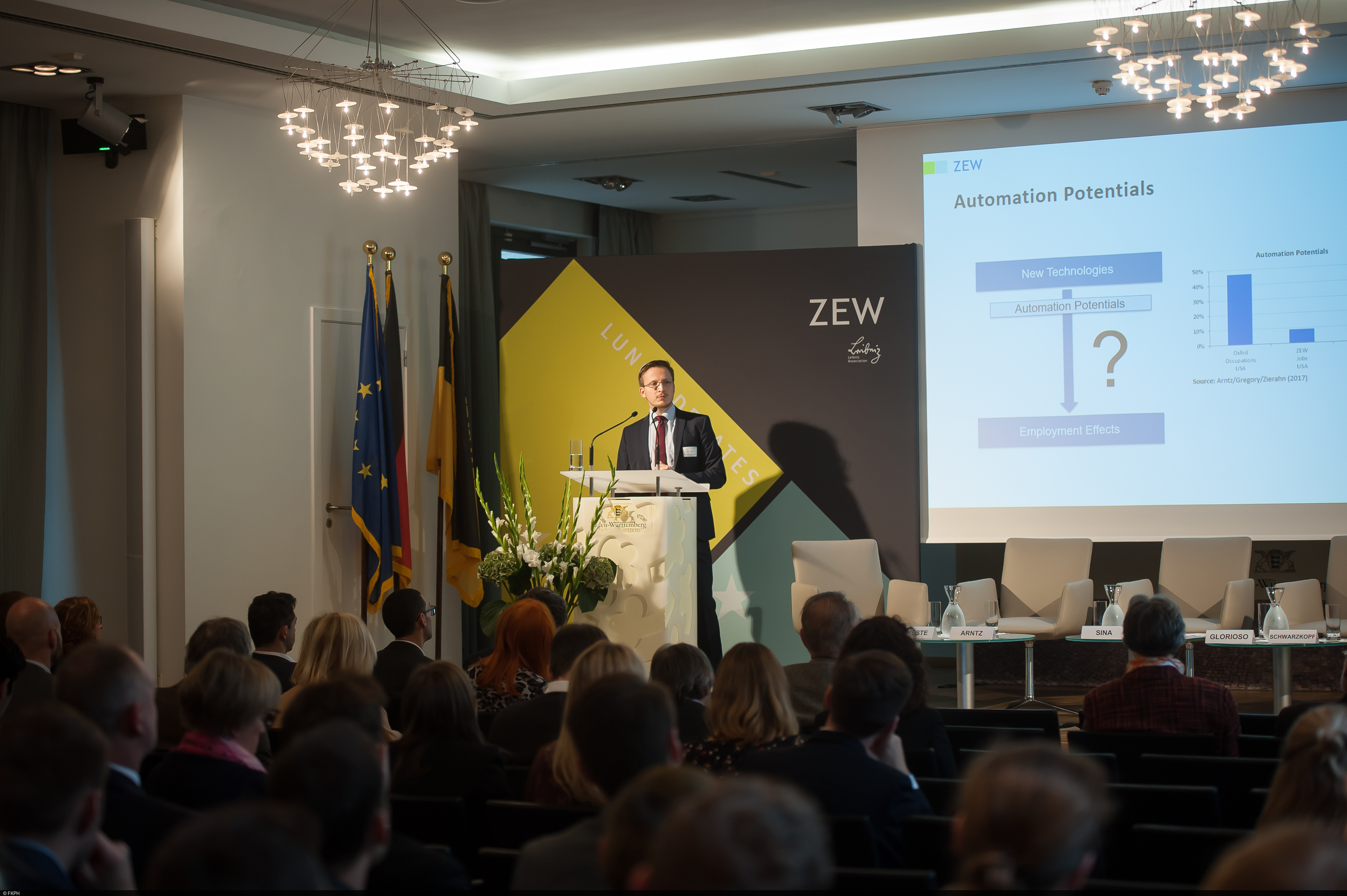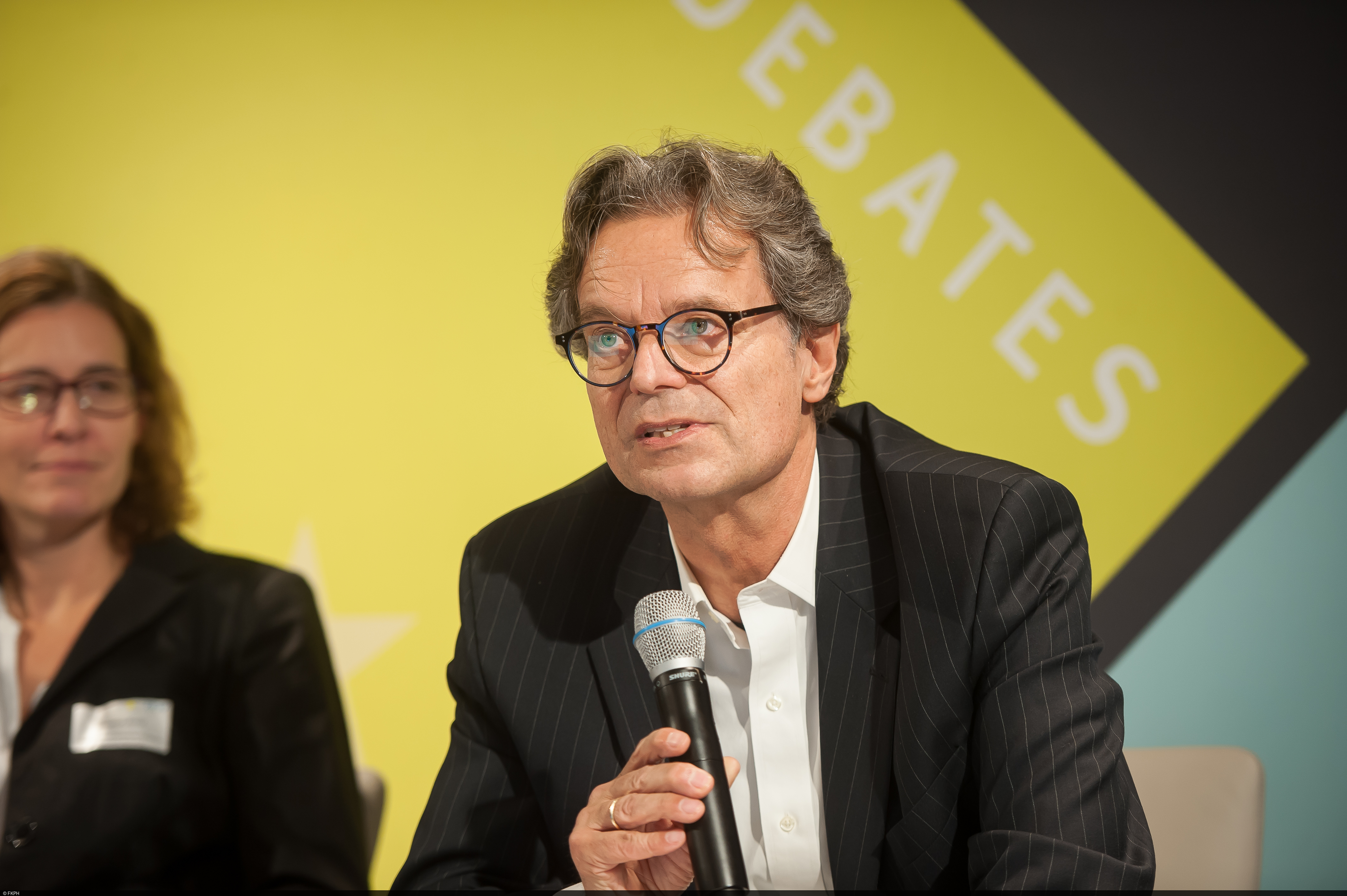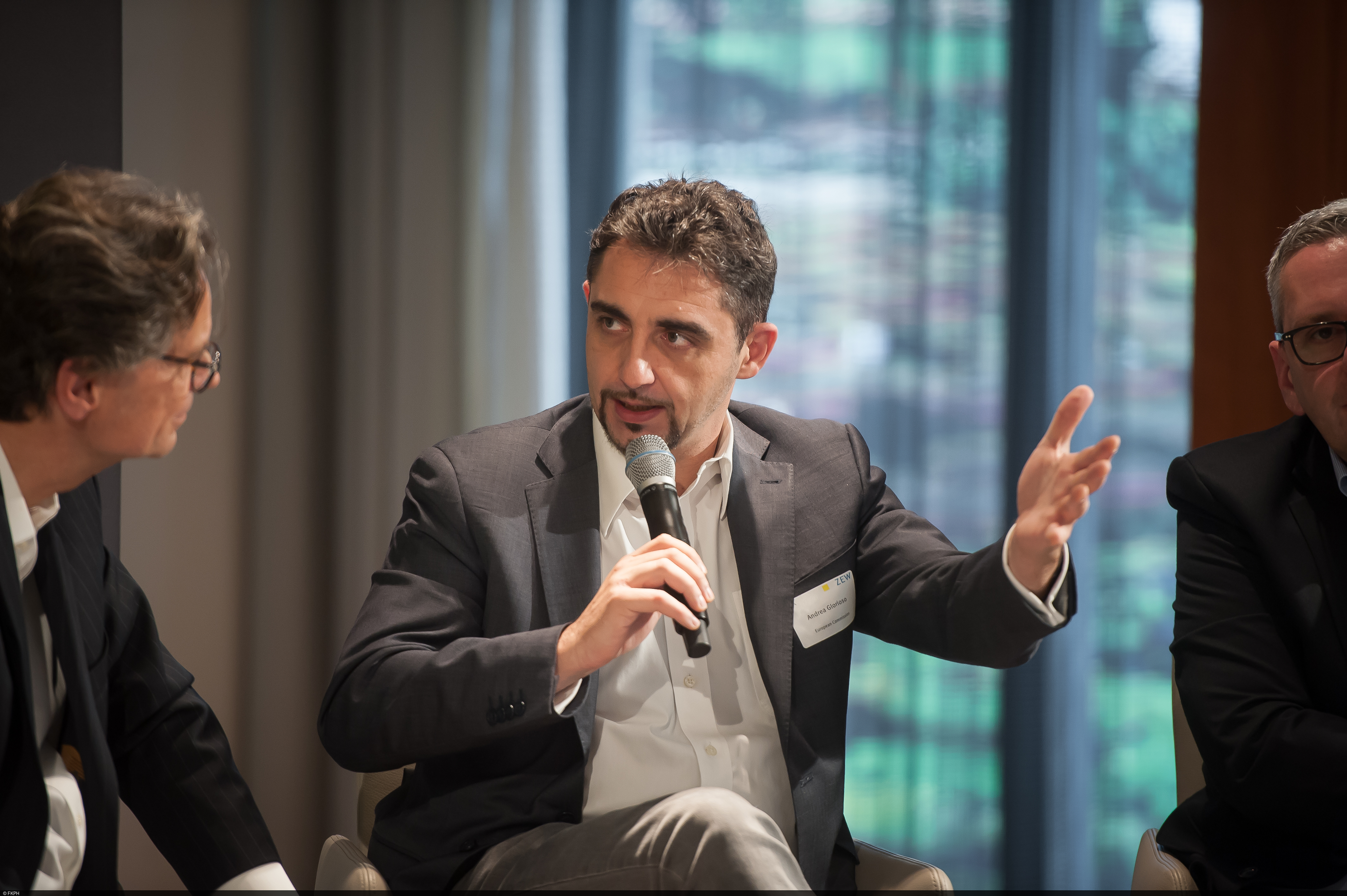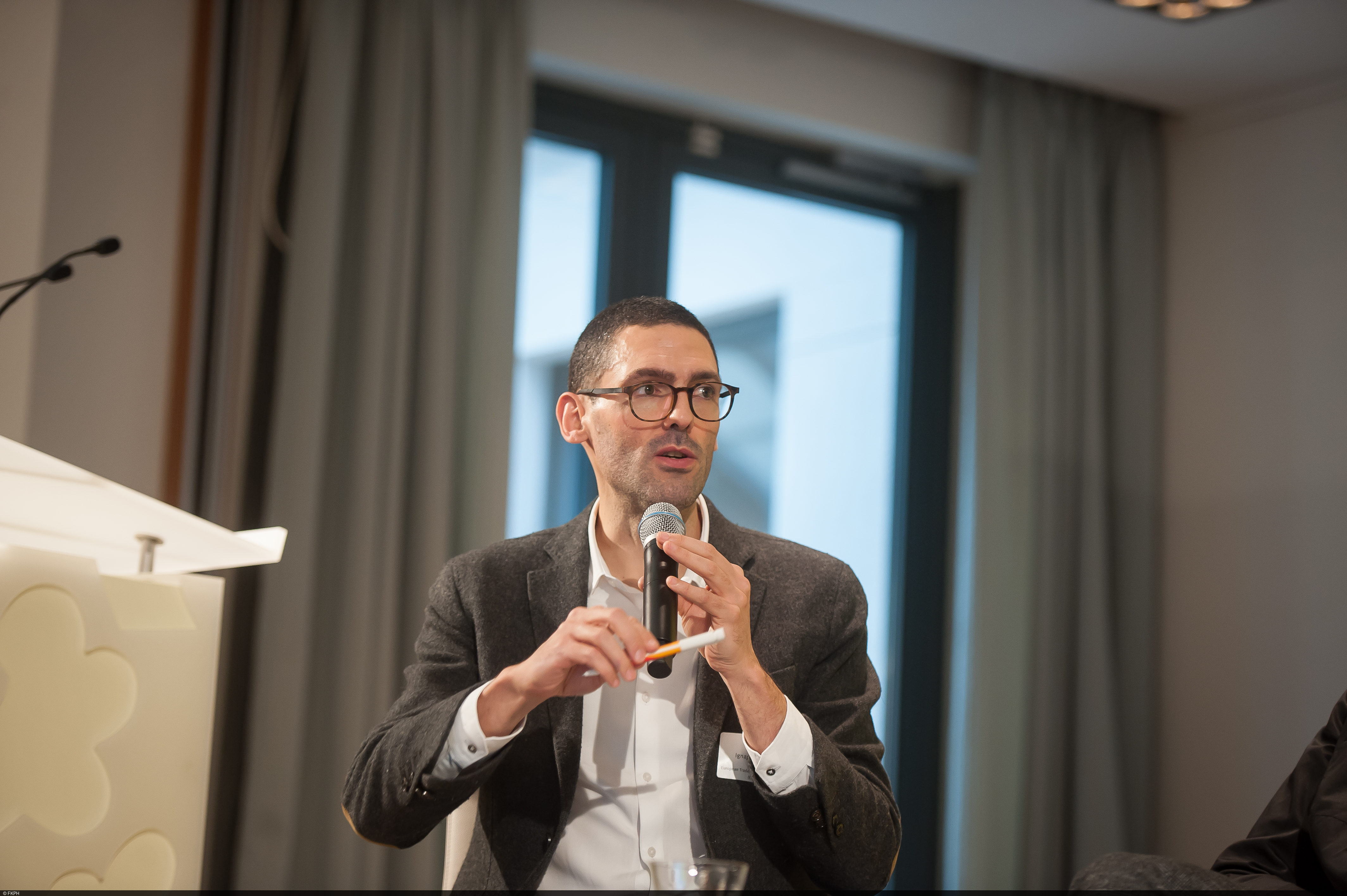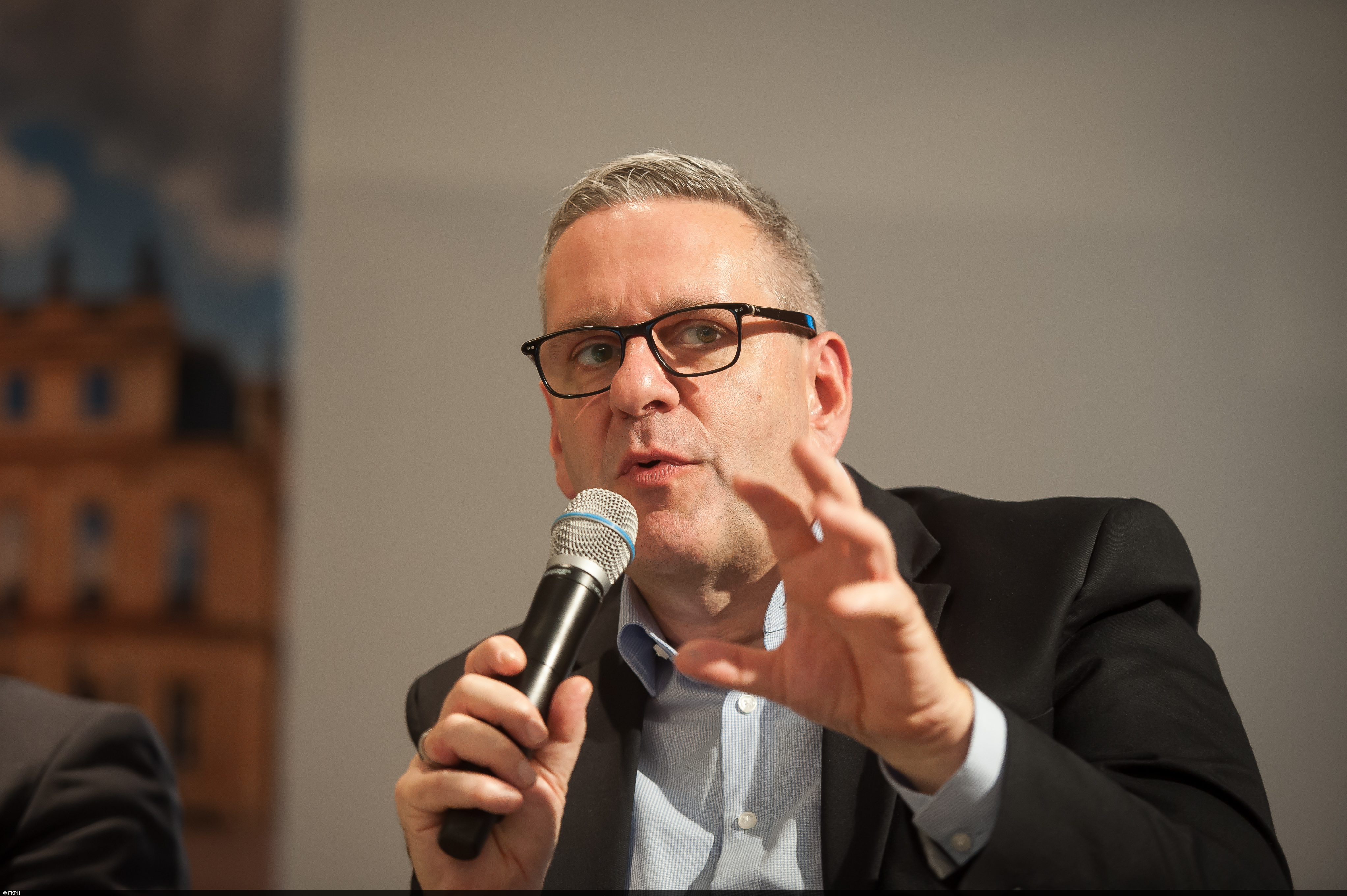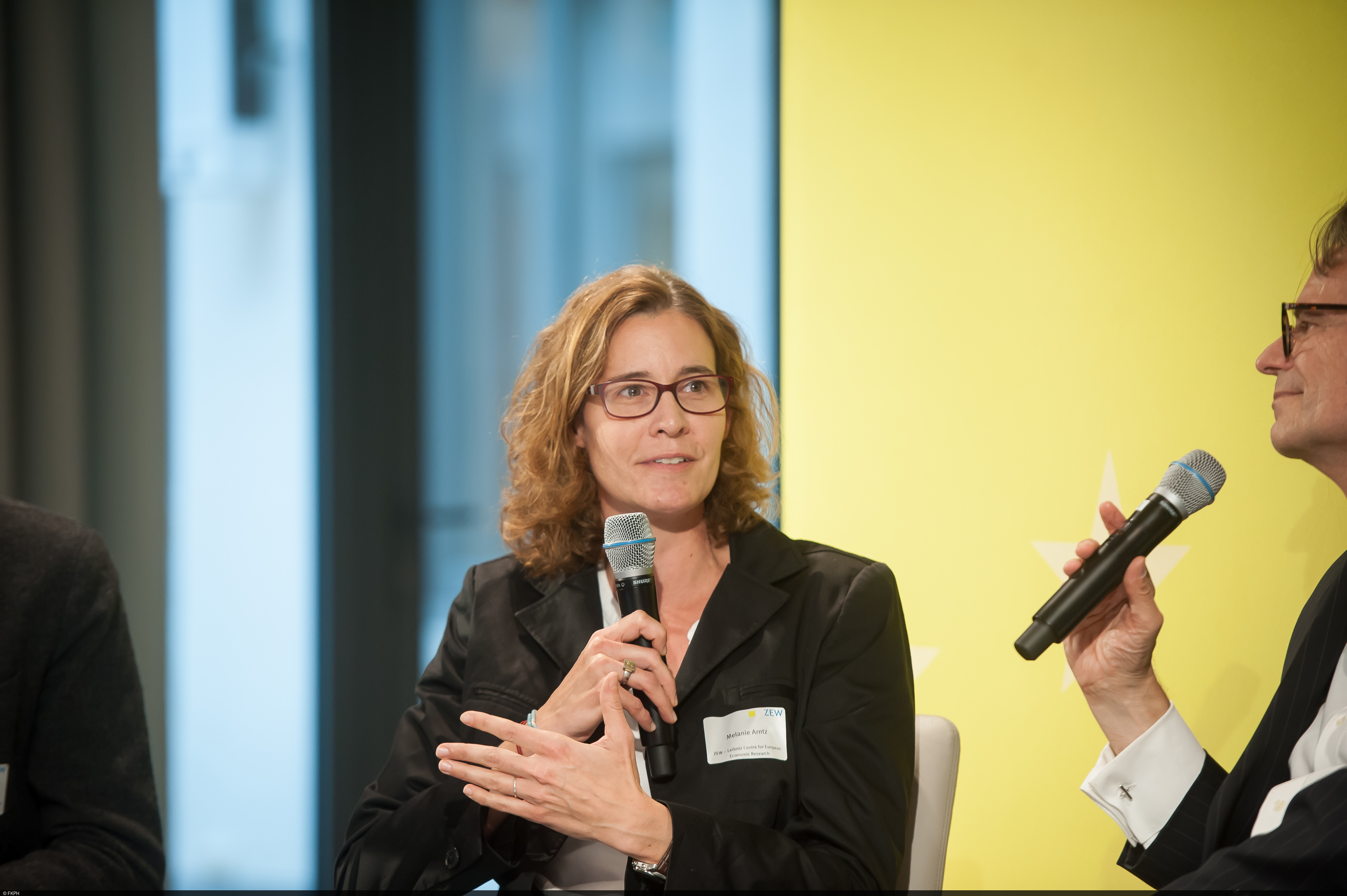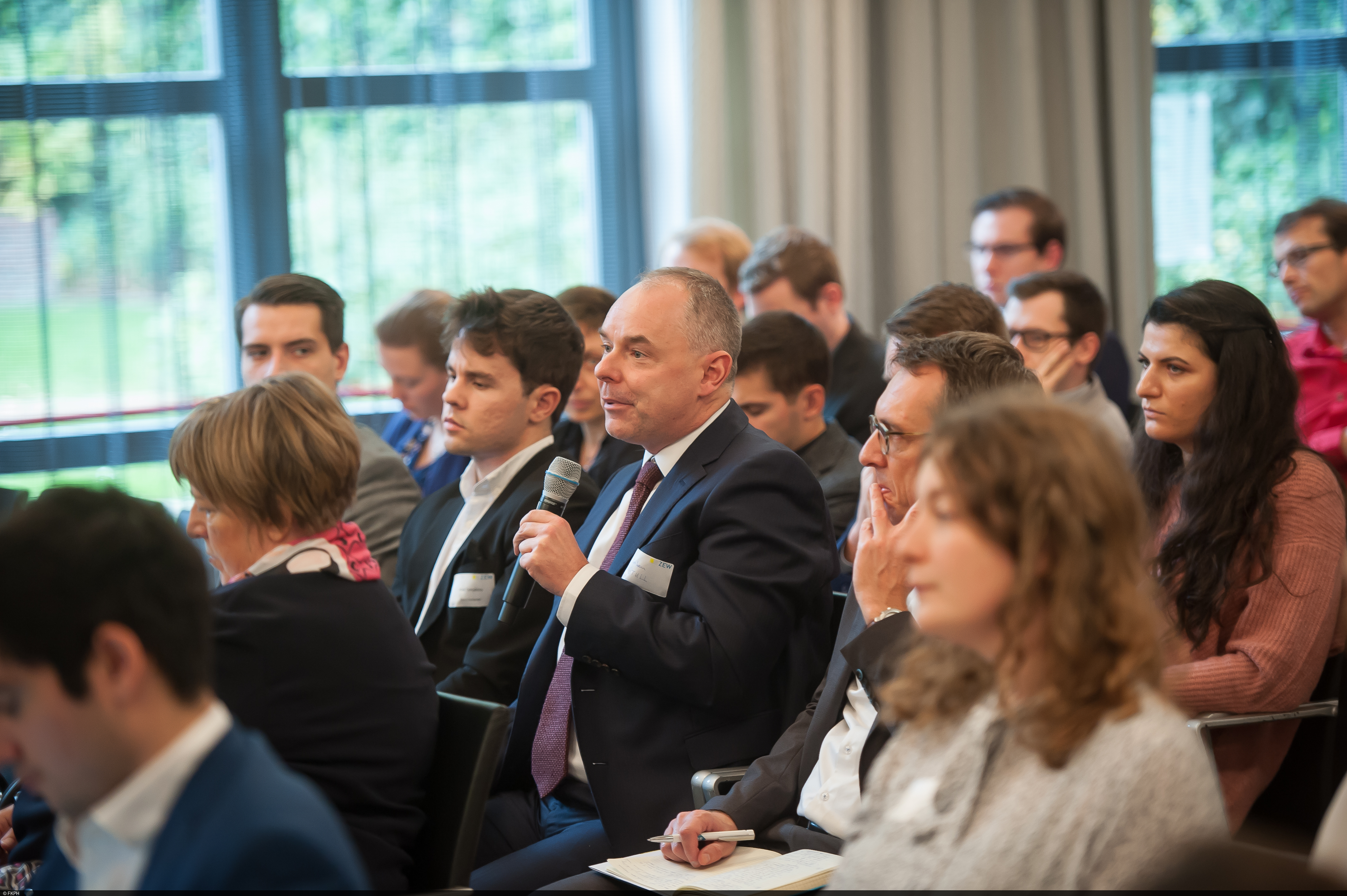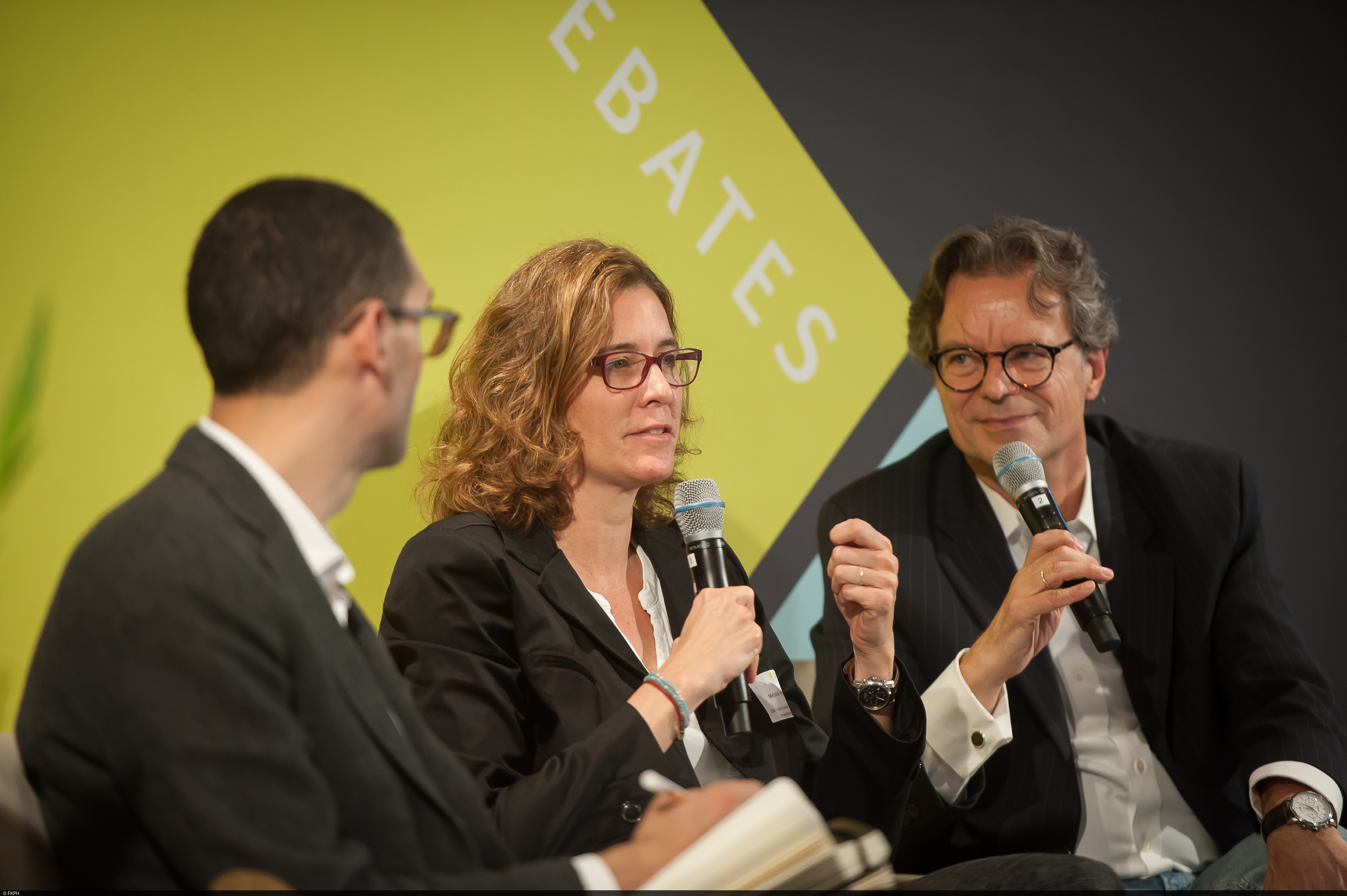Specialisation Helps to Avoid Job Losses
ZEW Lunch Debate in BrusselsPanel Debate on the Consequences of Digitalisation on the Labour Market
Digital change is a highly dynamic process that affects Europe’s labour markets. Polarisation and inequality are two of the greatest challenges to be tackled: while activities involving interactive and analytical skills will be able to withstand change, routine tasks are more likely to be automated in the future. So far, automation processes in companies have created more jobs than they have destroyed. However, it is important to make and keep people fit for the job market of the future through targeted training and further education. These were the key messages of the most recent ZEW Lunch Debate on 23 October 2019 at the Representation of the State of Baden-Württemberg to the European Union in Brussels.
The third ZEW Lunch Debate of this year started with the reassuring statement by Dr. Ulrich Zierahn, senior researcher in ZEW’s Research Department “Labour Markets and Human Resources”, that not so much the number of jobs but rather the nature of individual tasks will be subject to change in the course of digitalisation. After a brief welcoming address by Eyke Peveling, deputy head of the State Representation of Baden-Württemberg, the ZEW economist outlined the consequences of digitalisation for the labour market in a keynote speech to around 80 experts from associations, companies, civil society and EU institutions.
In his speech, Zierahn referred to the results of a recent ZEW study: “The analysis of the years 1999 to 2010 shows that automation processes have so far created more jobs than they have destroyed.” However, not all professions are equally affected by the consequences of digitalisation. “While activities involving interactive and analytical skills will be able to withstand change, routine tasks are particularly in danger of being automated. This increases the risk of growing inequality,” said Zierahn. According to him, it must be the task of politicians and companies to prepare the working population for this transformation process by providing training and targeted support. The debate on digitalisation in Europe should focus less on job losses and more on how to cope with technological change.
“We fear that the European labour market will become polarised”
This was the focus of the subsequent panel discussion, moderated by Ralph Sina, head of the WDR’s radio studio in Brussels. Ignacio Doreste of the European Trade Union Confederation agreed with the results of the study and did not deny the chances of technological change. However, he argued that fear would indeed prevail among workers. “We fear that the European market will become increasingly polarised in terms of wages and skills, with low skilled workers on the losing side, and medium and high skilled workers on the winning side,” Doreste explained.
Andrea Glorioso of the Directorate-General CONNECT at the EU Commission admitted that the DG had to take these concerns seriously, but also stressed that the European Member States should not evade responsibility: “The best way to cope with digital change is to share the tasks of mastering the labour market transformation among the Member States. Meanwhile, at the European level we need to take care of the coordination and transfer of knowledge.”
Man and machine work hand in hand
According to Professor Melanie Arntz, deputy head of the ZEW Research Department “Labour Markets and Human Resources” and co-author of the study presented by Zierahn, it is the flexibility of employees that counts: “Digital transformation does not mean that we all have to learn how to code now. Instead, it is more important to obtain interdisciplinary qualifications in areas where technology is not advancing.” Social and communicative skills in particular can hardly be replaced by algorithms and robots in today’s work environment. Politicians must ensure that people across all age groups and qualification levels are able to keep pace with the transformation process: “Even the best talents and long-term employees need to adjust to change. We never stop learning.”
Patrick Schwarzkopf, board member of the International Federation of Robotics (IFR) and director of Robotics at the Brussels-based EUnited – European Engineering Industries Association, believes that a hybrid division of labour offers solutions: “The skills of machines and humans are complementary, meaning that they have the potential to enhance each other. They should work hand in hand instead of competing with each other.” For example robots are unrivalled in physically demanding tasks, while humans are unbeatable when it comes to fine-motor, social and communicative activities. An ideal area of application is the care sector, in which there is currently a shortage of personnel. However, human care and personal contact are enormously important.
Social security in a high-tech working environment
Following on from Zierahn’s statement, Schwarzkopf made an interesting distinction between dedicated and general artificial intelligence (AI): “A dedicated AI is intended for specific tasks such as autonomous driving or image and speech recognition. It can replace simple but time-consuming routine tasks, but does not pose a threat to jobs where analytical thinking and human judgement are required. On the contrary, dedicated AI increases productivity by relieving people of tedious work.” On the other hand, an independently and logically “thinking” AI that could completely replace people’s jobs does not (yet) exist. Should science ever be that advanced, ethically responsible regulation would be indispensable, Schwarzkopf said.
In the subsequent Q&A session, moderator Sina also involved the audience in the discussion. The audience posed numerous questions and provided interesting solutions, such as the introduction of a tax on robots, on the basis of which further training programmes and retraining could be financed and social security systems for employees in Europe could be improved. The EU Commission under Jean-Claude Juncker already worked hard on this matter, emphasised Glorioso.
Melanie Arntz, on the other hand, criticised that taxes could slow down the transformation process. Instead, the labour market economist argued in favour of strengthening workers’ rights: “Workers in a high-tech work environment should also be able to count on paid parental leave, good protection in the event of illness and the right to work part-time.” Likewise, the idea of an unconditional basic income is not a bad one in principle. Ignacio Doreste also considered it feasible to reduce working hours while keeping wages at the same level. The coming years will show which solutions politicians and employers in Europe will ultimately opt for.
